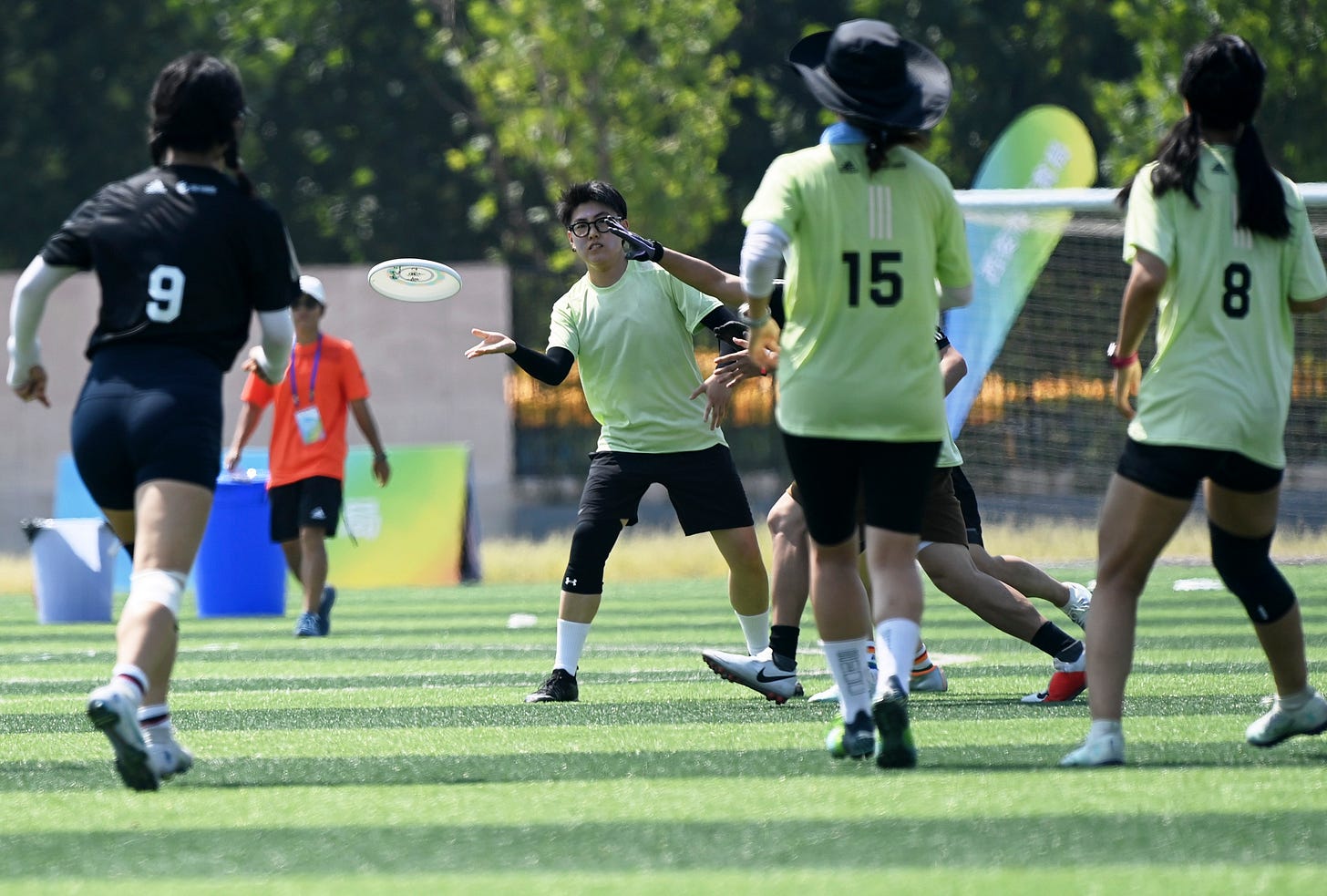Amsterdam Violence Continues Pattern of Jewish Athletes Targeted in Europe
Maccabi Tel Aviv fans behaved reprehensibly in Amsterdam but the following violence is part of a broader pattern targeting Jewish athletes from football to frisbee.
Antisemitic incidents in the Netherlands have been soaring. In 2023, the Dutch government registered 379 incidents, up from just 155 in 2022.
Most of these were written statements received by Jewish citizens by email or post, while the others ranged from defacing Jewish sites of worship, physical attacks, insults, and vandalism.
However, this alarming rise was no fair warning for the scale of the violence seen in Amsterdam since a Europa League match between Ajax Amsterdam and Maccabi Tel Aviv on November 7.
The Guardian has put together a full account of events so far, but briefly, tensions escalated due to actions by both sides. Some Maccabi supporters made violent and deeply distasteful references to Hamas and Palestine, damaged property and vehicles, got into fights, and ripped down Palestinian flags from buildings in downtown Amsterdam. This was met with a severe response, as “masked youths on scooters and ebikes seeking out, chasing down and beating victims – mostly in Maccabi colours – until about 4am.”
Over sixty people were arrested, but the violence did not end that night. On November 11, four days after the match, a tram and several cars were damaged by rioters in central Amsterdam. The mayor has designated several zones of the city where police can stop and search anyone.
This violence has split the Dutch political landscape, which has already taken highly different stances to the current violence in Israel, Palestine, and Lebanon.
Far-right MP Geert Wilders described the events as a “Jew hunt.” Mayor Femke Halsema faced criticism from conservative politicians for allegedly failing to protect Amsterdam’s citizens from aggressive Maccabi fans. One activist said that Dutch police had “protected armed Israelis” while a councilman said “Amsterdammers mobilised themselves and countered the attacks that started on Wednesday by the Maccabi hooligans.”
However, the violence is spreading abroad. In Berlin, a Jewish youth soccer team based in the city, TuS Makkabi, were chased by a crowd wielding sticks and knives after a match.
While this prolonged violence highlights the urgent need for better protections, it also demands a collective response from sports organizations, governments, and fans.
However, mounting evidence sadly seems to show that Jewish citizens and sports teams will continue to suffer for showing up to compete or spectate.
The recent attacks in Amsterdam and Berlin accompany a rise in antisemitic sentiment in virtually every European nation, which accompanied the continuous Israeli attacks on Gaza and Lebanon.
The escalation of violence seen in Amsterdam did not happen in a vacuum.
A far broader problem
European cup matches are an obvious catalyst. Before the current violence in Amsterdam, the most notable recent case came in 2021, when a few Union Berlin fans threw beer, made Nazi salutes, and hurled insults and threats at visiting Maccabi Haifa supporters.
Besides Israeli clubs, teams with a legacy of support among Jewish communities are often targeted.
Despite having a hugely diverse fanbase, Tottenham Hotspur remains a target of antisemitic abuse due to its historical ties to London’s Jewish community.”
Its fans are still regularly referred to as “Yids,” a derogatory term derived from Yiddish.
When the club issued a statement condemning the violence in Gaza, the Israel Spurs Supporters' Club said its fans felt betrayed.
The most high-profile antisemitic attack on the Tottenham fan base came in 2013. Ahead of a Europa League match against French team Olympique Lyonnais, Spurs fans were attacked by up to 50 masked men in a Lyon pub.
“Eyewitnesses said the attackers smashed doors, and threw cast-iron chairs, wooden objects and a flare in the pub, which is popular with expatriates. Witnesses also claimed they made Nazi salutes,” the Guardian described.
In other instances, individual Jewish players are targeted. Welsh defender and Wycombe Wanderers captain Joe Jacobson has had to use personal security at matches. Jacobson has now joined a new antisemitism task force in the UK.
From the Olympics to Frisbee
The 1972 Olympic Games in Munich saw a truly horrific act of terrorism against Israeli citizens, when 11 members of Israel’s Olympic team and a German policeman were assassinated by Palestinian militants.
Despite this stained past, virtually every Olympiad has reported threats against participating Jewish athletes and coaches.
Paris 2024 was no exception. Death threats were sent to athletes in Paris, the personal details of Israeli delegation members were leaked online, and other antisemitic acts were reported at a pre-Games football match.
But the racism extends far beyond Europa League and the Olympic Games.
An international frisbee tournament, set to be attended by over 30 Israeli teenage competitors, was suspended in Ghent, Belgium, last August. While some teams were dismayed that Israeli competitors would travel to take part, due to the war in Gaza, it was reported that anti-Israel messages were sprayed onto a wall in the town.
The city of Ghent decided to ban the Israeli side due to “given the current local and international unrest, threats and recent incidents,” even though the team had fairly qualified and was not accused of any provocation.
Recent allegations of anti-Israeli remarks or acts have marred matches in basketball, tennis, judo, and more.



